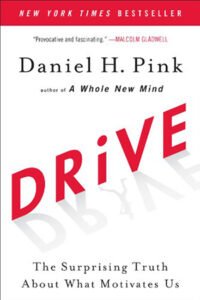|

|
Drive:
The essential requirement: Any intrinsic reward should be unexpected and offered only after the task is complete.
|
66 |
|
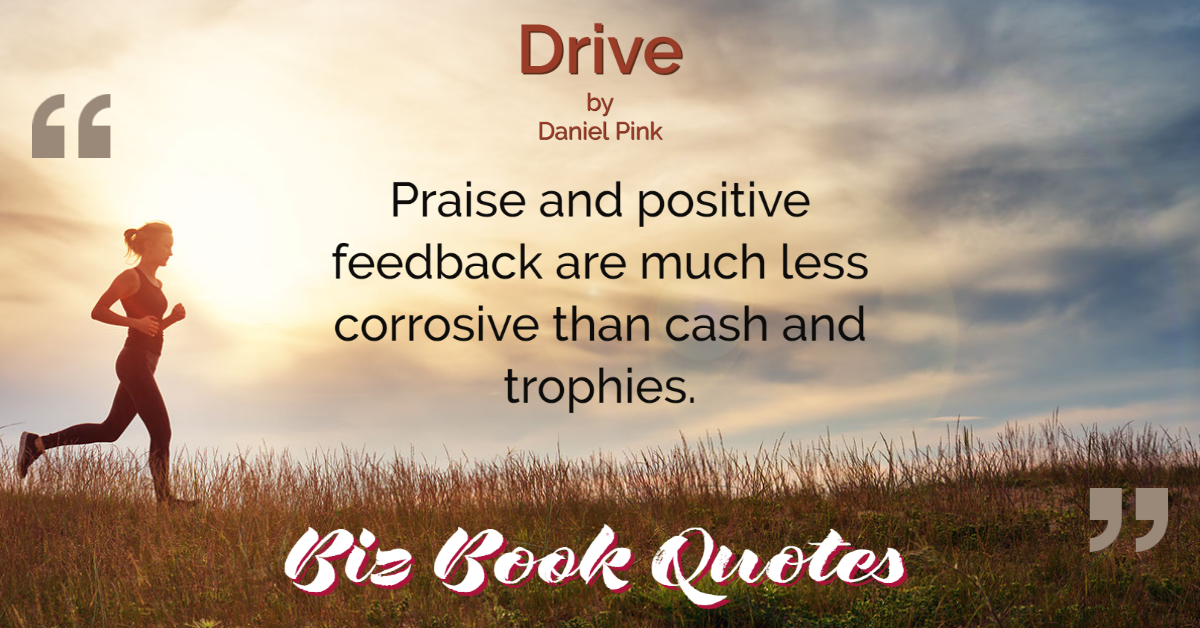
|
Drive:
Praise and positive feedback are much less corrosive than cash and trophies.
|
67 |
|
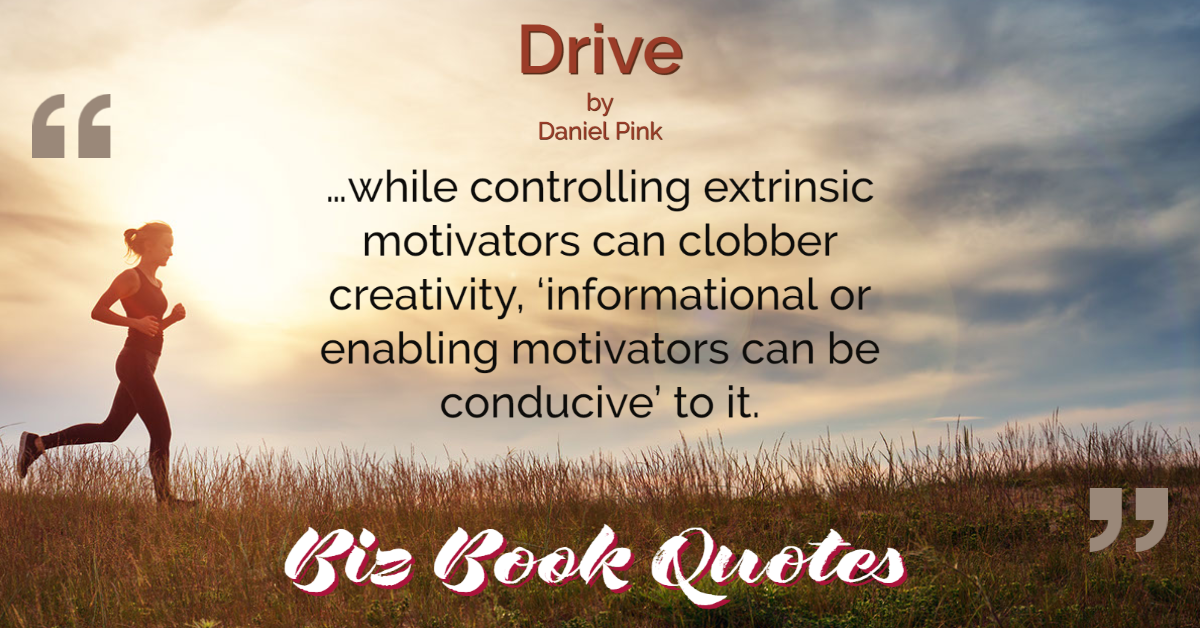
|
Drive:
…while controlling extrinsic motivators can clobber creativity, ‘informational or enabling motivators can be conducive’ to it.
|
67 |
|
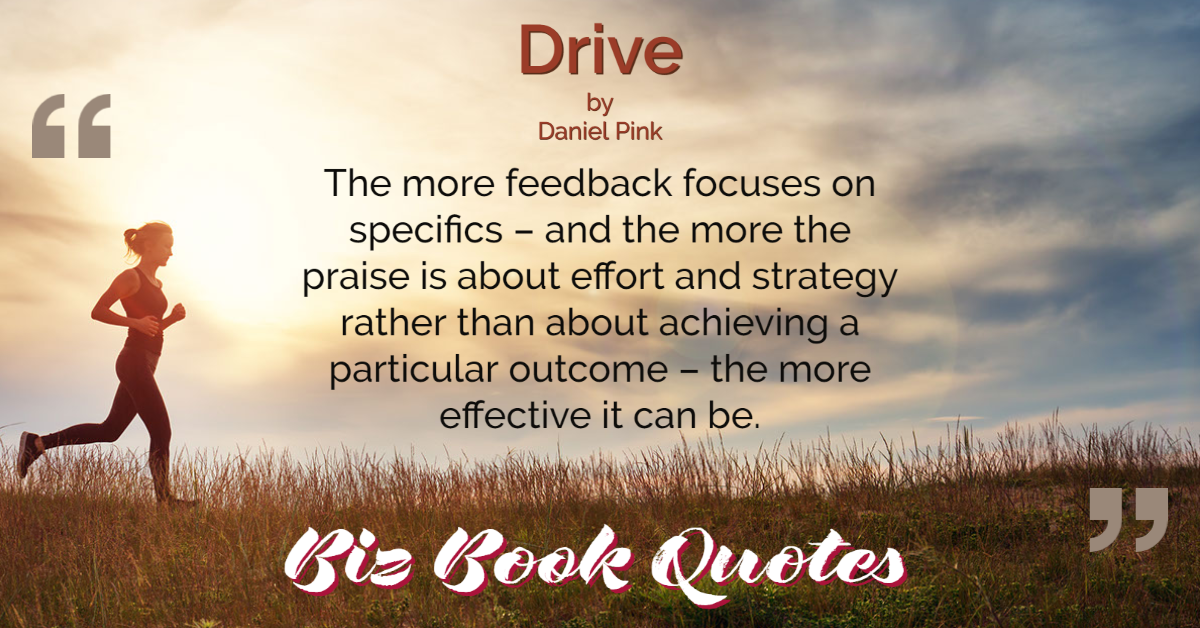
|
Drive:
The more feedback focuses on specifics – and the more the praise is about effort and strategy rather than about achieving a particular outcome – the more effective it can be.
|
68 |
|
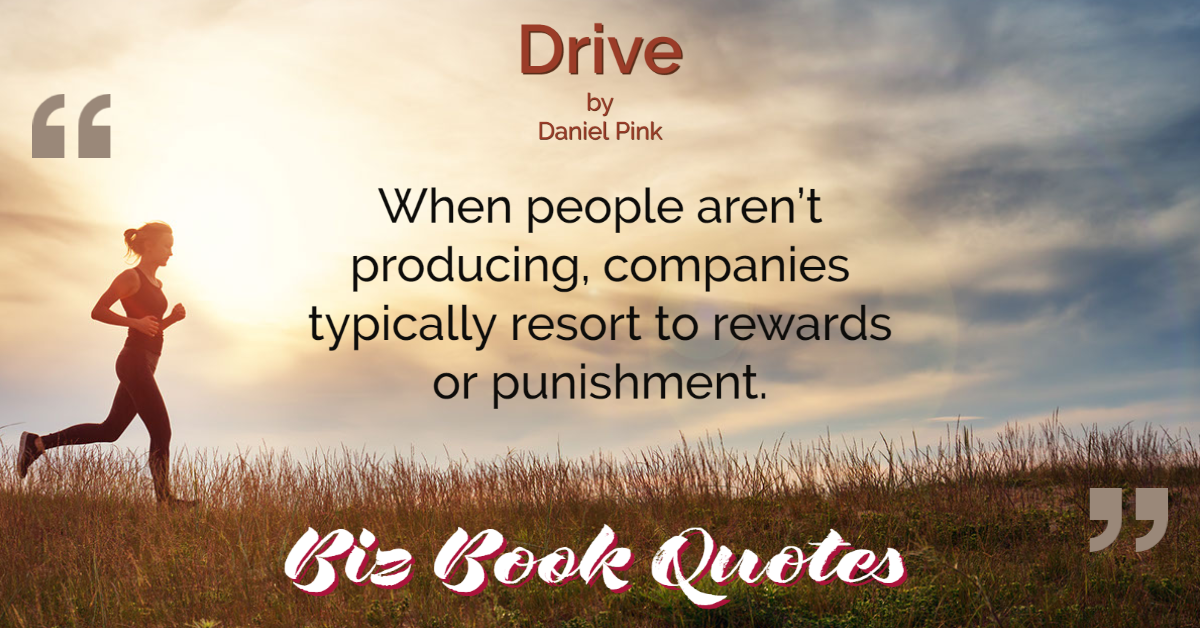
|
Drive:
When people aren’t producing, companies typically resort to rewards or punishment.
|
72 |
|
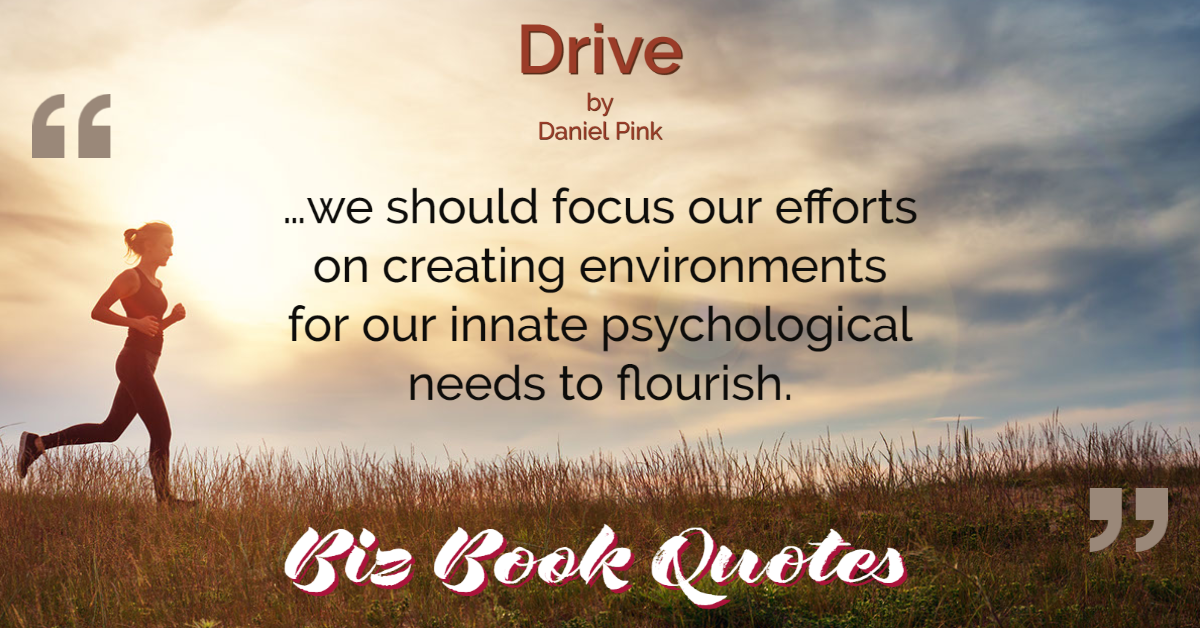
|
Drive:
…we should focus our efforts on creating environments for our innate psychological needs to flourish.
|
72 |
|
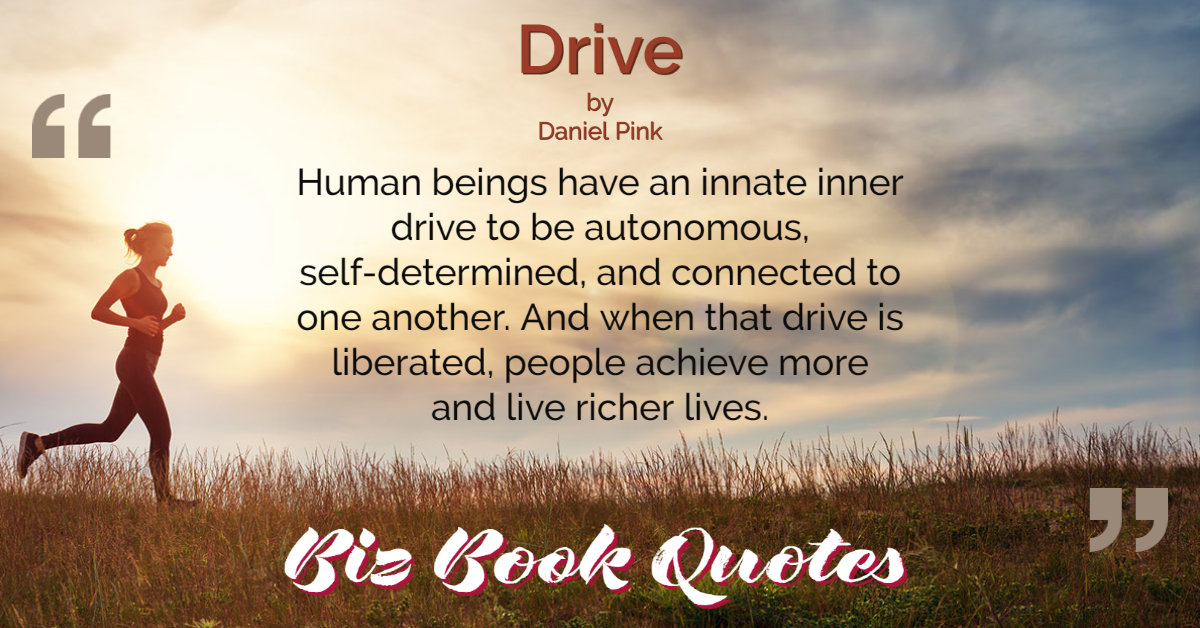
|
Drive:
Human beings have an innate inner drive to be autonomous, self-determined, and connected to one another. And when that drive is liberated, people achieve more and live richer lives.
|
73 |
|
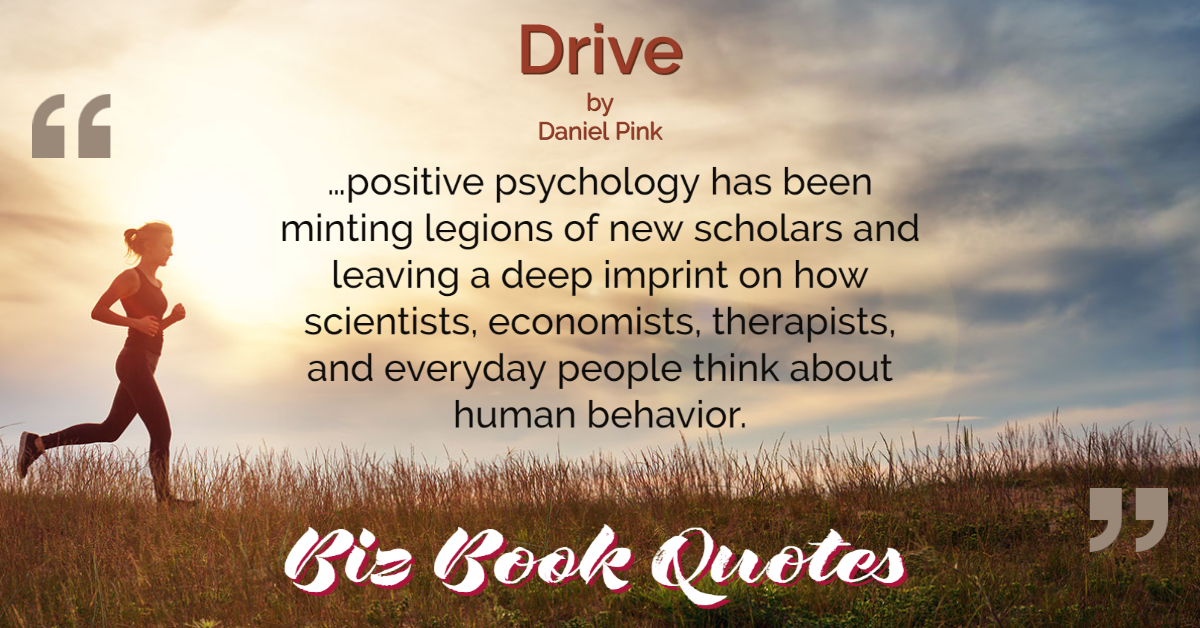
|
Drive:
…positive psychology has been minting legions of new scholars and leaving a deep imprint on how scientists, economists, therapists, and everyday people think about human behavior.
|
73 |
|
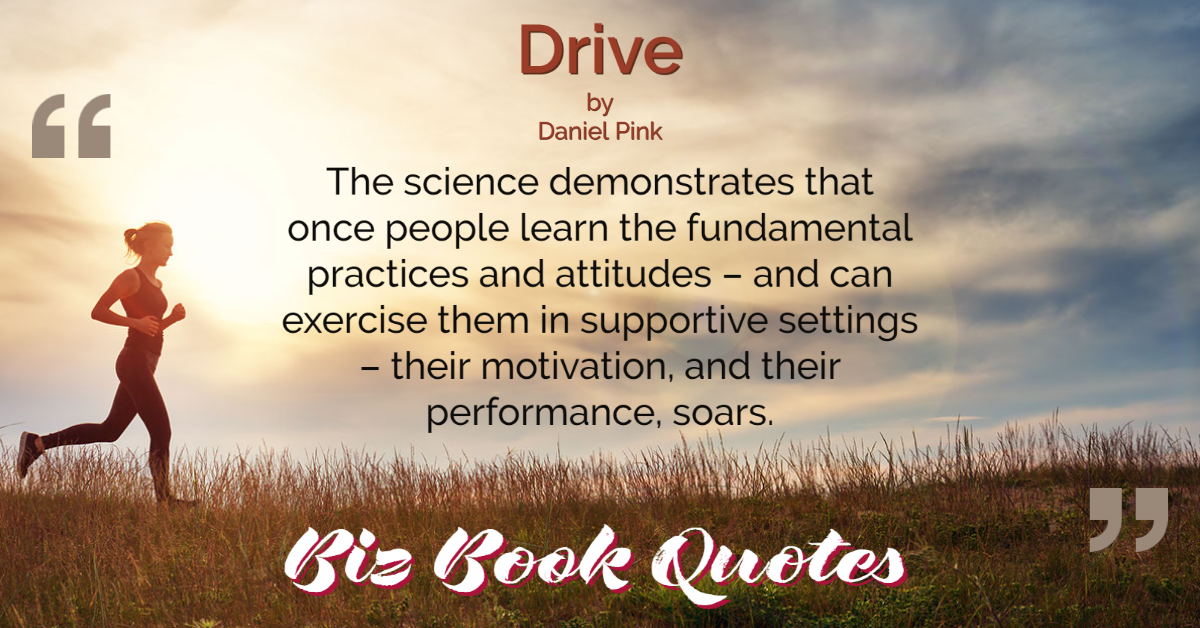
|
Drive:
The science demonstrates that once people learn the fundamental practices and attitudes – and can exercise them in supportive settings – their motivation, and their performance, soars.
|
79 |
|

|
Drive:
Intrinsically motivated people usually achieve more than their reward-seeking counterparts.
|
79 |
